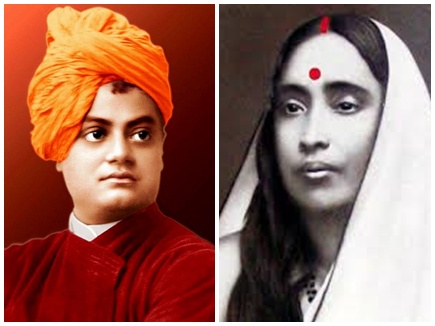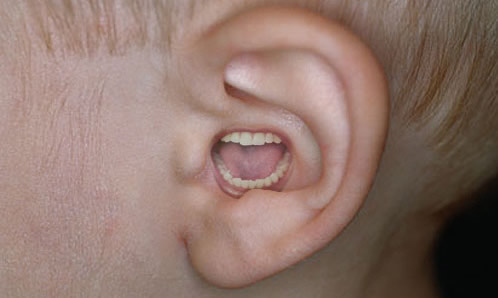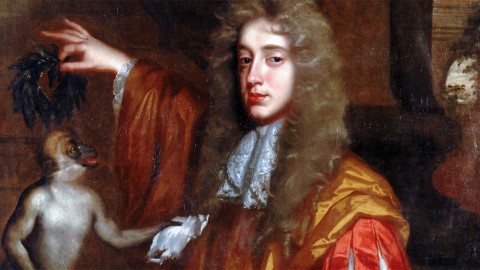A small anecdote in the life of Vivekananda.
Vivekananda is leaving India for America. He goes to Mother Sharada, the wife of his Master, Ramakrishna, for her blessing. Ramakrishna had died, leaving Sharada behind him. So Vivekananda goes to her and says, “I am leaving for America, and I seek your blessing.”
Sharada queries, “What are you going to do in America?”
Vivekananda says, “I will spread the message of dharma in that country.”
Sharada, who is in her kitchen, directs the young monk to pass her a knife meant for cutting vegetables. Vivekananda hands the knife to her. Then Sharada says, “You have my blessings.”
But Vivekananda wants to know if there was any connection between her asking for the knife and her blessings to him. Sharada says, “I wanted to know the way you handle the knife while passing it to me.”
Ordinarily, anyone would do it indifferently, without awareness. He will hold the handle of the knife in his hand and pass it with the blade directed toward the one who asks for it. But Vivekananda has the blade of the knife in his hand and its handle is directed toward his master’s wife. Sharada says to Vivekananda, “Now I think you are worthy of carrying the message of dharma to America.”
If you were in Vivekananda’s place, you would have taken the handle in your hand, because that is the usual way. Ordinarily, no one would do it any differently, but Vivekananda does it very differently.
And it is not accidental. Vivekananda is not expected to be prepared for it. It is not written in any book that, “When Vivekananda will go to Sharada for her blessings she will ask him to pass her a knife.” No scripture can say it, and a person like Sharada is unpredictable. Who could know that she was going to test Vivekananda’s awareness in this way? Is this a way of knowing a person’s religiousness? But Sharada says, “I bless you, Vivekananda, because you have a religious mind.”
Practice Awareness
Risk everything for awareness, but never risk awareness for anything. This is the commitment of a everyone: that he is ready to lose his life but not his awareness; he has found a value which is higher than life. There is no other value which is higher than awareness. Awareness is the seed of godliness in you. When it comes to its full growth, you have come to the fulfillment of your destiny. As your goes deeper, your actions may not be efficient but they will have a new quality, the quality of grace, which is far more valuable. No machine can have the quality of grace. Your actions, your words will have a beauty of their own.
The way a man of awareness lives, each moment is filled with tremendous grace and beauty. It is reflected in his actions, even in the smallest actions – just in the gesture of his hand or just the way he looks; in the depth of his eyes or the authority of his words or the music of his silence. His very presence is a celebration.
In ancient India the student goes to master and learn the syllabus given to them. But they also need to learn which cannot be taught, means awareness. Depending upon what they have learn which cannot be taught they will be given responsibility in the society, princes are also included. Unless the prince will be certified by enlighten master, the king will not give him his kingdom to rule.
Many of us will say that they do meditation or similar practice regularly. That’s fine. But are we carrying the meditation in our action? Everyone need to ask this question to themselves.
Meditation or similar practice for certain time doesn’t mean that you become aware. Awareness need all the 24×7 practice. Whatever we do it can become prayer if we do it with awareness. Even cleaning the floor, walking, talking everything will become prayer. Awareness cannot be found in books. It is very much in all our act, including sleep. In ancient India use to practice yoga-nidra. Yoga-nidra is practice to remain aware in our sleep also.
Yoga nidra or “yogi sleep” is a sleep-like state which yogis report to experience during their meditations.
Yoga nidra refers to the conscious awareness of the deep sleep state, referred to as “prajna” in Mandukya Upanishad.
Learning from story Sharada’s Blessing: Practice Awareness
Experience Learning
Yoga brings deep rest to the body and mind. It not only rejuvenates your mind but also adds vigor to the body. It’s a good idea to end your daily yoga practice with Yoga Nidra or yogic sleep.
Simply described as an effortless relaxation, Yoga Nidra is an essential end to any yoga pose sequence. While yoga poses warm up the body, Yoga Nidra cools it down. This closing yoga asana involves consciously taking your attention to different parts of the body and relaxing them.
Yoga practices increase the energy levels in the body. Yoga Nidra helps conserve and consolidate this energy and relax the entire system, thereby preparing it for pranayama and meditation. It is, therefore, important to keep aside sufficient time for Yoga Nidra in your yoga regime.
How to do Yoga Nidra:
Lie down straight on your back in Corpse Pose (Shavasana). Close your eyes and relax. Take a few deep breaths in and out. Remember to take slow and relaxed breaths.
Start by gently taking your attention to your right foot. Keep your attention there for a few seconds, while relaxing your foot. Then gently move your attention up to the right knee, right thigh and hip. Become aware of your whole right leg.
Gently, repeat this process for the left leg.
Take your attention to all parts of the body: genital area, stomach, navel region, chest.
Take your attention to the right shoulder, right arm, palms, and fingers. Repeat this on the left shoulder, left arm, throat, face, and finally the top of the head.
Take a deep breath in and observe the sensations in your body. Relax in this state for a few minutes.
Slowly becoming aware of your body and surroundings, turn to your right side and keep lying down for a few more minutes. Rolling over to the right side makes the breath flow through the left nostril which helps cool the body.
Taking your own time, you may then slowly sit up, and whenever you feel comfortable, slowly and gradually open your eyes.
Benefits of Yoga Nidra:
Cools down the body after yoga postures
Restores normal temperature
Activates the nervous system to absorb the effects of yoga asanas











